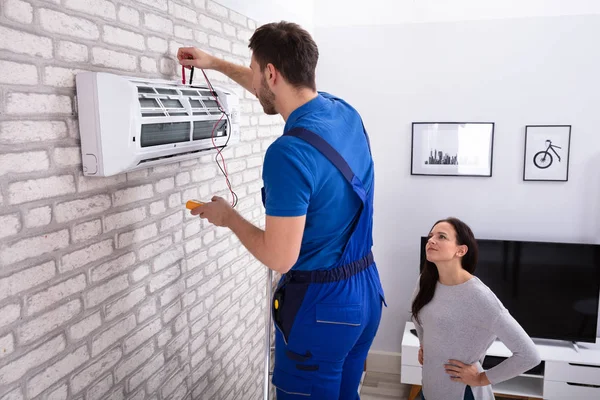
Proper air conditioning (AC) maintenance is essential for keeping your system running efficiently and extending its lifespan. However, several common mistakes can undermine your maintenance efforts and lead to costly repairs or system failures. Here’s a guide to help you avoid these pitfalls and ensure effective AC maintenance.
Skipping Regular Maintenance
One of the most common mistakes is neglecting regular maintenance:
- Importance of Routine Checks: Regular inspections by a professional HVAC technician are crucial for identifying and addressing potential issues before they escalate. Skipping these checks can lead to undiagnosed problems and reduced system efficiency.
- Scheduled Maintenance: Follow a maintenance schedule, typically recommended at least once a year, to keep your AC system in optimal condition.
Ignoring Air Filter Replacement
Failing to replace or clean air filters can impact system performance:
- Filter Function: Air filters trap dust, dirt, and other particles, preventing them from entering the system. A clogged filter restricts airflow, forcing the system to work harder and reducing efficiency.
- Replacement Schedule: Replace or clean air filters every 1-3 months, depending on the filter type and usage, to maintain proper airflow and system performance.
Neglecting Outdoor Unit Care
The outdoor condenser unit requires regular attention:
- Clearing Debris: Leaves, branches, and other debris can obstruct the condenser unit’s airflow, leading to overheating and reduced efficiency. Regularly clear the area around the unit and ensure it is free of obstructions.
- Checking for Damage: Inspect the outdoor unit for signs of damage or wear, such as bent fins or loose connections. Address any issues promptly to prevent further damage.
Overlooking Thermostat Calibration
An improperly calibrated thermostat can affect system performance:
- Calibration Checks: Ensure your thermostat is accurately reading and maintaining the set temperature. An inaccurate thermostat can cause the system to run longer than necessary or fail to maintain comfort.
- Professional Calibration: Have a technician calibrate and test your thermostat during routine maintenance to ensure accurate temperature control.
Failing to Address Strange Noises
Ignoring unusual noises can lead to more serious problems:
- Identifying Noises: Strange noises, such as grinding, squealing, or banging, can indicate mechanical issues or worn components. Address these noises promptly to avoid potential damage.
- Seeking Professional Help: If you hear unusual sounds, contact a professional technician to diagnose and fix the issue before it leads to more extensive repairs.
Improperly Setting Thermostat
Incorrect thermostat settings can impact efficiency and comfort:
- Avoid Extreme Temperature Settings: Setting your thermostat to extremely low temperatures can put unnecessary strain on the system. Use reasonable temperature settings to avoid overworking the AC.
- Using Programmable Thermostats: Consider using a programmable thermostat to optimize cooling schedules and reduce energy consumption when the home is unoccupied.
Neglecting Ductwork Inspections
Ductwork plays a crucial role in system efficiency:
- Checking for Leaks: Leaky ducts can result in significant energy loss and reduced cooling efficiency. Inspect and seal any leaks in the ductwork to ensure proper airflow and system performance.
- Regular Inspections: Include ductwork inspections as part of your maintenance routine to address any issues that may affect system efficiency.
DIY Repairs and Maintenance
Attempting DIY repairs can lead to further issues:
- Avoiding DIY Fixes: While basic maintenance tasks like changing filters can be handled by homeowners, more complex repairs and diagnostics should be left to professionals. Improper repairs can cause additional damage and void warranties.
- Hiring Professionals: Engage qualified HVAC technicians for repairs and in-depth maintenance to ensure the job is done correctly and safely.
Neglecting System Upgrades
Older systems may require updates to maintain efficiency:
- Assessing System Age: If your AC system is outdated, consider upgrading to a more energy-efficient model. Older systems may not perform as efficiently and can lead to higher repair costs.
- Evaluating Upgrades: Consult with an HVAC professional to evaluate potential system upgrades and improvements that can enhance performance and reduce maintenance needs.
Conclusion
Avoiding these common mistakes during AC maintenance can help ensure your system operates efficiently and reliably. By adhering to a regular maintenance schedule, properly managing filters, and addressing potential issues promptly, you can extend the life of your AC unit and maintain a comfortable home environment. For complex issues and repairs, always consult with a professional HVAC technician to ensure your system remains in top condition.